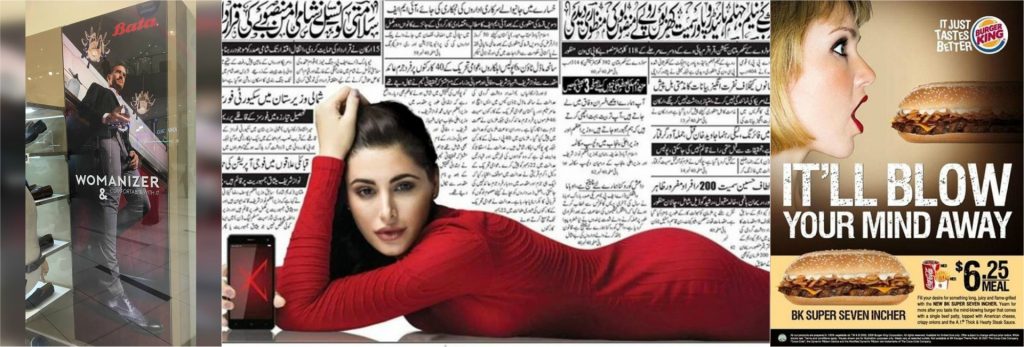Disclaimer*: The articles shared under 'Your Voice' section are sent to us by contributors and we neither confirm nor deny the authenticity of any facts stated below. Parhlo PInk will not be liable for any false, inaccurate, inappropriate or incomplete information presented on the website. Read our disclaimer.
Since times immemorial, women have always been profoundly objectified through the media. In a society where media is the most persuasive force that shapes cultural norms, the shared message we receive is that a woman’s power and value lie in her beauty, sexuality, and youth, and not in her capacity as a trailblazer.
While women continue to make remarkable strides at their workplaces and at home, they still fall prey to portrayals as instruments of sexual pleasure in advertisements. The film ‘Miss Representation’ pulls back a curtain to uncover a glaring reality we live with every day but fail to understand – how the media’s constrained and often disparaging representation of women and girls makes it arduous for women to feel confident and powerful about their triumphs.
Women in the media have often been underestimated by being labeled with distasteful titles and referred to as objects. While some might dismiss such acts as inoffensive, they insinuate an unfathomable, harsh reality of our society.
From advertisements of internet packages, cell phones, and telecom companies to estate guides, automobiles, motorbikes and housing societies, female models are an inevitable feature of today’s commercial marketing. Unfortunately, the trade of such products is considered proportional to the attractiveness of women in these ads.
Theoretically, objectification implies the treating of women as objects that are simply valued for their utility. When a woman’s body is disconnected from her as an individual, she is fundamentally viewed as a physical object. Sexual objectification refers to treating a person as a mere item of sexual desire. When a person is objectified, there is no consideration of dignity.

Let’s talk about some examples that pertain to the society we can relate to. Remember the advertisement campaign by one of Pakistan’s leading telecom companies that featured a renowned Indian model provocatively lying down on the front pages of Urdu publications? The most recent version focused on how the woman lacks the X-factor dressed in the customary office attire and unexpectedly, obtains it, after she wears a silk dress, gets a blow dry and walks down the ramp to gratify the whims of her male instructor.
The tagline, “Dunya ko bata do” leaves one wondering what the company’s intentions were. Have you seen ads of ceiling fans where a lethargic housewife is beating the heat while exhibiting her hair or those of ice-cream brands where a charming woman is indulging in a pleasurable experience?

One ad for a local kheer mix revolves around a bride preparing kheer for her new family. Her brother-in-law warns her about the daunting task of making the perfect kheer. Her mother-in-law refuses to help her. Her father-in-law ultimately gets to decide her fate based on the quality of the kheer. His facial expressions and reactions generate a wave of disgust in the audience, as the woman’s fate should not rely upon the taste of her cooking.

A recent in-store ad of a local footwear brand featured a man with a tagline “Womanizer” and “Comfortable with it” – somehow, some agencies and brand teams don’t understand the importance of the concepts and language they use in brand communication.

Although many condemn the objectification of women in the media, little has been said about who is accountable for it and what can be done to curb it. How severe is the issue? Do people generally feel that women like being objectified? Women, from an early age, are repeatedly told that they should strive to achieve a flawless body structure, skin, complexion, hair and features.
Nevertheless, the women we see in advertisements are often the inventions of photo editing. Men purchase specific brands of fragrances or clothes because they associate themselves with those perfect women. Women, in turn, buy certain clothes, food, and makeup products, in an attempt to resemble the perfect woman.
Women need to appreciate their imperfections and value their individuality. People mostly objectify the things they love in an effort to control them. But if you truly love someone, please do not diminish them to an object. The moment you objectify a woman or anyone for that matter, you give up your sense of humanity.
As a culture, women are brought up to be fundamentally insecure and are always looking for the time when that knight in shining armor will come and rescue them. The media can be an instrument of change, it can maintain the status quo and reflect the views of the society, or it can hopefully awaken people and spark the seeds of change in their minds.






